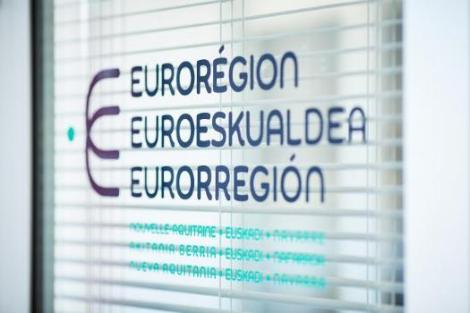RIS3 Cross-border Euroregion New Aquitaine - Euskadi - Navarre
2014
Cross-border cooperation is a partnership between private or public players, separated by a State border, whose actions have repercussions at regional and local level on either side of the border. Within the European area, 360° mobility across the border, the projects and policies that accompany this mobility in territories close to the border, and the progressive cross-border integration that this cooperation builds and gives rise to cross-border territories, characterise different experiences. To illustrate the results of more than 20 years of cooperation within the Mission Opérationnelle Transfrontalière (MOT), 20 unique experiments carried out by MOT members for the benefit of the inhabitants of cross-border territories were highlighted In various fields: The innovation and research sector is one of the pillars of territorial development. Intelligent specialisation projects, or RIS3, are supported by many regions in Europe. We take a look at the case of the New Aquitaine - Euskadi - Navarre Euroregion.
Moving towards a knowledge-based economy, improving the competitiveness of businesses and their access to new markets, stimulating cooperation between them… Supporting the education system and all the Euroregion’s research and innovation centres… These are the Euroregion’s priorities.

The aim of the Strategy is therefore to improve mutual knowledge and communication between businesses in the three regions, as well as between all the players and facilitators in research and development, technological innovation (development of cross-border start-ups), training (apprenticeships and universities) and employment.
The Euroregion seeks to strengthen the economic and social cohesion of the cross-border area through strategic partnerships: COMPETITIV’EKO, which proposes to structure 3 cross-border clusters (BIG DATA, INNOV’MEDICA and ADDITIVALLEY), and the partnership led by the Chambers of Commerce of the 3 regions focusing on local internationalisation. In terms of research and innovation, existing strategies are most often defined within a national framework, thus limiting cross-border cooperation initiatives. At regional and local level, however, border territories can reveal complementarities between research systems and economic fabrics located on either side of a border (pooling of equipment, mutual enrichment of different scientific cultures, complementary specialities of research laboratories, etc.).
The New Aquitaine-Euskadi-Navarre Euroregion has drawn up a Strategic Plan for the period 2014-2020, establishing a diagnosis of the state of cooperation in the Euroregion between 2007 and 2013. This document, which identified four areas of cooperation (Euroregional citizenship; knowledge economy, innovation, entrepreneurial competitiveness; sustainable territory; open governance), highlighted a certain lack of awareness of possible synergies in the field of innovation. Hence the search for points of convergence between the respective RIS3 (Intelligent Specialisation Strategies) of New Aquitaine, Euskadi and Navarre, with a view to creating a joint Euroregional economic development strategy. The strategy has identified the following sectors around which cooperation can be organised: aeronautics and transport; health/biohealth; agriculture and the agri-food industry; sustainable construction, wood; renewable energy; marine and coastal resources.